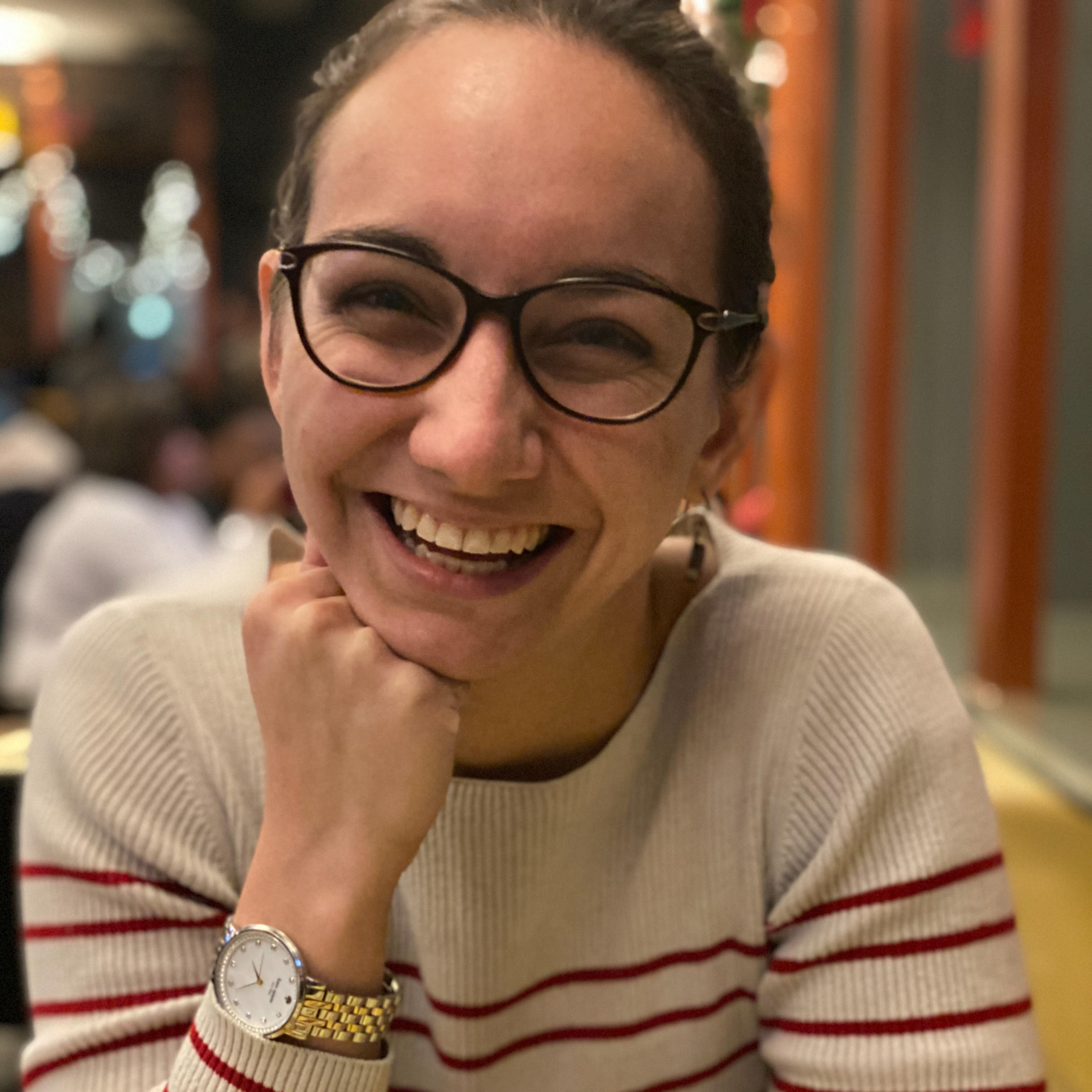Reckoning with Grief and Unanswered Prayers
Letter from Melanie Gould
Photo by Chelsey Shortman
For two and a half years, I said the same prayer every night, “I need her. My little brother needs her. My baby sister needs her. Lord, just let her get better.” In the beginning, people told us they were praying. And then, towards the end, they told us they were praying for a miracle.
We’re told Jesus raised people from the dead. He could cure the sick and heal the blind. But, when I asked and pleaded for these same things, He didn’t answer.
Two weeks after my 18th birthday, my mom passed away from Stage IV ovarian cancer. She was 47. My brother was 15, my sister was 7. And my dad, a former pro soccer player and businessman – the furthest thing from a stay-at-home mom – was left to raise us, alone.
My siblings and I were so blessed to have incredible parents – but my mom especially was the lifeblood of our family, the bridge between all of our relatives, the community builder. She was the one who taught us the importance of writing thank-you notes for our birthday gifts beginning at age 5. She helped us make Easter baskets of colored eggs and baked goods for all of our neighbors each year (and on Christmas Eve they got homemade coffee cakes for Christmas morning, of course!). She used to take us to our town’s nursing home each week during the summer so we could volunteer, taking wheelchair-bound residents to Mass. Every family member, no matter how distant, received a birthday or anniversary card in the mail without fail each year (and always on time). All of our family gatherings – birthdays, barbecues, beach trips, Christmases – were coordinated in some way by her.
But when she got sick, all these activities took on a different meaning. Would this be the last trip to the beach with Mom? Would this be the last time we spent our final days of summer helping her decorate her first grade classroom? Would this be her last birthday we shared together?
The last few years became a desperate drive to make memories – as many as possible, as good as possible. We took a big trip to Europe; my parents did a wedding vow renewal ceremony; we had a huge family reunion with first, second, and third cousins from all over the country. Each memory was inevitably bittersweet because there was a ticking time bomb in the backdrop of everything we did. We could hear it, but we never knew when it would go off. And no amount of praying gave us those “No Evidence of Disease” scans we so desperately craved.
When that time bomb did eventually go off – my mom in and out of the ICU, then two months of sleepovers in the hospice wing, then her passing – our lives shifted. We had to adjust to a “new normal” and accept that life would never be the same.
There’s a word in Welsh, “hiraeth,” that embodies what this new normal meant for me. The word hiraeth means a homesickness or nostalgia for a home that you can’t return to, or maybe never was. It is a deep longing for something that no longer exists. And that feeling – of a longing that can’t be fulfilled, a thirst that can’t be slaked – is exactly what it felt like, trying to “move on” from the grief, to find a new home.
In a final letter my mom wrote to me, she said, “If you ever need me, just look up – know I’ll be there, with God.” It was as if she was telling me that I could make my new home in the church. But after having my prayers dashed, I wondered if I even wanted to make it my home.
I had already heard all the lines from others: God doesn’t give you what you can’t carry... It all happens for a reason. But what do you do when you feel so abandoned by God?
A few months after my mom’s passing, one of my public school teachers, a teacher that knew me just well enough to joke with me, but not well enough for any heart-to-hearts, asked me how I was doing. “I’m okay,” I remember saying reflexively. By this point, it had become a knee-jerk reaction to anyone asking that question. They didn’t need to know about how I saved my tears until one o’clock in the morning so that my siblings wouldn’t hear me cry. Or the nightly ritual when I would put my little sister to bed, only to have her wake up with night terrors two hours later.
That teacher that I knew so impersonally, looked me in the eyes and said the most personal thing possible: “Melanie, I think you’re angry at God.” The whole situation felt Joan of Arcadia-esque, like God was trying to speak to me through a familiar stranger. I laughed uneasily at first, brushing it off – but then my eyes welled up with tears. I knew he was right – whether it was God, or my teacher. I had been so angry at God for what He did, for what He didn’t do, for what He took away – and hadn’t even realized it.
But that conversation gave me a label for where God and I stood in our relationship. For the first time, I set the Melanie-God relationship status to “It’s Complicated,” knowing that one day, far into the future, we might be on speaking terms again. At that moment, I needed God to be over-patient with me. I was willing to be brought back to Him in time, but with the recognition that that time was not then (or even close to then).
In the beginning, my prayer life was, at best, hesitant. It felt like tiptoeing out on an icy lake, not being sure if it was six feet thick, or if it would crack underneath me. But I found that when I went off-script – speaking openly with God about my anger with Him, my fear of trusting in Him again, rather than simply saying the prayers that could be found in a devotional – it made it possible to begin to heal. Just like in any relationship, when we are completely open with the other person, it allows for healthy confrontation, to move relationships past painful phases, and to enter new, more resilient ones.
One of the things I used to do during this time of hesitancy was just open my Bible. I would pray for God to speak to me through the words on whatever random page I opened to. Perhaps I was challenging Him, trying to get Him to prove to me He was there. I remember one time doing this, while all of my anger and grief were boiling over. And I happened to open to Jeremiah 20:7-9. After reading it, I cried. It reads:
“You deceived me, Lord, and I was deceived; you overpowered me and prevailed. I am ridiculed all day long; everyone mocks me. Whenever I speak, I cry out proclaiming violence and destruction. So the word of the Lord has brought me insult and reproach all day long. But if I say, ‘I will not mention His word or speak any more in His name,’ His word is in my heart like a fire, a fire shut up in my bones. I am weary of holding it in; indeed, I cannot.”
I felt like Jeremiah – angry, deceived – but I also knew that I kept coming back to God. I couldn’t help but return to Him, despite all the anger, the mistrust, the frustration. He may have angered me, but He was still my refuge. Because we were inextricably linked – for I was one of His people, and He was my God (Jeremiah 30:22).
I came to the realization that when I had prayed for my mom, I was asking for a specific outcome: my outcome. I wanted my mom to survive and live a long, healthy life with us. I wanted her to help me dress for prom, for my wedding; I wanted her to meet her grandchildren and be the amazing grandmother I knew she’d be. But when we pray the Our Father at church each Sunday, we don’t pray “my will be done.” We pray, “thy will be done.” These are two incredibly different prayers. One claims we know exactly how things should go; the other asks for the acceptance of things we can’t change, placing our trust in God’s hands.
Jesus, too, felt loss. The shortest line in the Bible reads, “And Jesus wept,” after finding Lazarus had passed away. I felt so much comfort in the knowledge of Jesus’s humanity. Even the Son of God mourned the ones He deeply loved. But He never backed down from following His Father’s will – He only moved forward, with strength and conviction and love. With trust.
Just as there was a higher purpose in Jesus’s suffering, perhaps there is for us, too. Perhaps the holes in our broken hearts are meant to be healed, in part, by each other. When we know the isolation of loss, we know the importance of being present for others, even when we are unsure of the words that should be said.
When we have felt the crushing weight of grief, so strongly that it renders us unable to move through our day, we know then the crucial role of performing acts of service in times of need: bringing meals to people, or cleaning their house for them, or watching their children. Our suffering moves us to act because we know the importance of action.
Handwritten quote from the writer
This transfiguration of suffering to love, of pain to empowerment, is a miracle in itself – and is truly something that only our loving Father could do.
Today, over nine years since my mom passed, God and I are no longer on complicated terms. Rather than working against me, I see God as working with me. I continue to pray for him to take my grief, my sufferings, my weaknesses, and make them a place that sows love, kindness, and strength.
In Christ,
Melanie Gould

About the Writer: Born and raised in Miami, FL (and now living in much, much colder Western New York), Melanie is a cradle Catholic, a wife, and a soon-to-be mom of a baby boy (prayers are always welcome!). When she's not working alongside her husband, she's helping run the young married couples group and Pre Cana at her parish, hand-lettering cards to friends, or cooking her favorite Cuban and Puerto Rican recipes from home.










